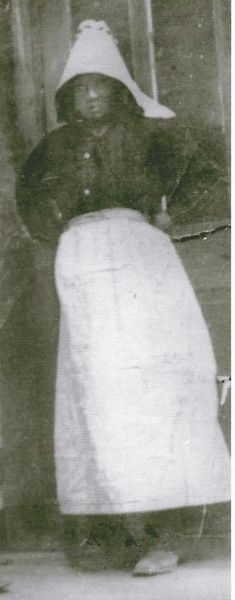-morgran-2013-photo.jpg?fit=outside&w=411&h=1051)
2013 LEGACY INDUCTEE DISTRICT 12
Agnes “Annie” Morgan (1833-1914)
Agnes “Annie” Morgan, born a slave on a Baltimore plantation in 1833, fled the horrors of the Civil War, sought adventure in the west where she cooked for General George Armstrong Custer, and survived in the Montana wilderness by homesteading land, near the Hog Back, on Rock Creek, near Philipsburg, Montana. She lived a productive life of 81 years. While living on her homestead, she changed her name to Annie and answered to that name for the rest of her life.
Annie was taught to be a house slave, learning to cook, sew, read and write. As a young teen she studied herbs and ways to make natural medicines. Custer used this expertise often when Black soldiers needed medical attention. For her entire life she kept a black doctor’s bag on a peg by her back door. Annie responded to neighborhood medical emergencies, be it human or animal.
The shocking news of Custer’s death in 1876 reverberated throughout the nation. Buffalo Soldiers, involved with the Custer Cavalry, took Annie with them to Ft. Benton, Montana Territory. There she met a man from Philipsburg in need of a housekeeper/nurse to care for his terminally ill relative. He hired Annie.
Annie lived in a rustic cabin some twenty miles west of Philipsburg, where Rock Creek flowed past her front door. Part of her pay was the cabin. She applied for a homestead grant, claiming the cabin and land in her name. After five years of proving up, she was granted the site. Annie was the only Black woman in Granite County in the 1880 U.S. Census. She was the only Black woman to have a homestead in that county, which she held until her death in 1914.
Being totally self-sufficient, Annie raised potatoes and other vegetables, berries, and herbs. She kept chickens, milk cows, and pigs. She preserved wild game and trout in a smoke house. A two-horse wagon team carried her to town. She used a sled for winter trips when four feet of snow isolated her from the nearest neighbor, almost five miles away.
She built an icehouse, a dugout pantry into the side of the mountain, a fireplace built from the river rock, a sturdy barn and a chicken coop. She operated the abandoned sawmill on her land to cut the trees from her property.
Annie ran a creative business of allowing fishermen to pitch tents, hobble their horses, and fish the river in front of her cabin door. Known for her southern cooking, for fifty cents a day she cooked their catch and supplied dinner. A roaring campfire in the evenings always enticed the guests to talk about the big ones that got away.
One evening Annie found a man delirious from typhoid lying in the water. She fished Joseph “Fisher Jack” Case out of Rock Creek. She nursed him back to health, and love bloomed. He stayed with Annie for over 30 years in a common law marriage. The laws of the day would not allow the inter-racial couple to legally marry.
On April 8, 1914, at the age of 81, Annie’s heart stopped beating. She is buried in the Philipsburg Cemetery in Phillipsburg. Her tombstone reads, “Agnes “Annie” Morgan 1914, Cooked for General George A. Custer, A good neighbor and liked by all who knew her.”
Resource:
Annie Morgan’s death certificate, State of Montana.
"Homestead Papers." Montana Historical Society Helena.
"Annie – From Slavery to a Montana Homestead," by Lenore McKelvey Puhek.
Photo Credit: The Granite County Historical Museum, Philipsburg, Montana.

